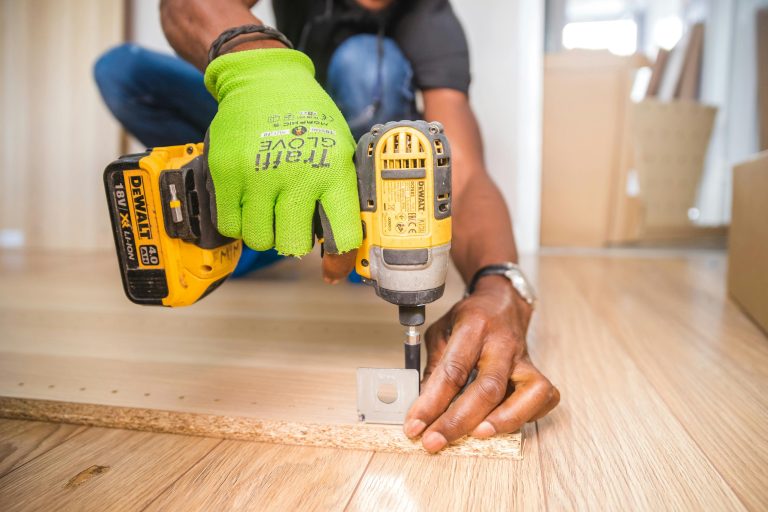We’ve all been there. Something breaks in your house, and you’re left wondering if you need to drop everything and call a pro, or if you can handle it yourself with a YouTube tutorial and some elbow grease. I’ve faced this dilemma more times than I can count. Sometimes I’ve made the right call, other times… well, let’s just say I’ve learned some expensive lessons.
Signs a Home Repair Can’t Wait Another Day
Water where it shouldn’t be is almost always an emergency. Sounds obvious, right? But you’d be surprised how many people see a small leak and think, “I’ll get to that this weekend.” Bad move. Small leaks become big problems fast. Same goes for electrical issues that involve sparking, burning smells, or repeatedly tripping breakers.
Gas smells? Get out of the house and call the utility company immediately. Not tomorrow, not in an hour. Now.
Structural issues are tricky. A small crack might be nothing, or it might be the first warning of serious foundation problems. If you notice doors suddenly not closing properly or cracks appearing above doorways, don’t ignore it. These things rarely fix themselves.
Plumbing Problems: DIY or Call the Pros?
I’ve fixed plenty of plumbing issues myself over the years. Clogged drains, running toilets, dripping faucets – these are all totally doable DIY projects that can save you a couple hundred bucks.
But then there’s the stuff you shouldn’t mess with. Anything involving the main water line or sewer line? Leave it to the pros. Major pipe replacements? Same deal. You might think you’re saving money, but one mistake and suddenly your basement looks like a swimming pool. Not worth it.
Electrical Issues You Should Never Touch
I’m pretty handy, but I draw the line at serious electrical work. Replacing outlets or light fixtures is one thing. Rewiring parts of your house is another.
The risks aren’t worth the savings. Electrical fires are terrifying, and they can happen when amateur work goes wrong. Plus, insurance might not cover damage caused by unlicensed electrical work, which is just adding insult to injury.
Structural Concerns vs. Cosmetic Fixes
Cosmetic stuff is usually fine to DIY. Paint job looking shabby? Go for it. Tile backsplash outdated? You can handle it.
But anything involving load-bearing walls, foundations, or roof structures requires professional assessment. I once knew someone who knocked down what they thought was a non-load-bearing wall… it wasn’t. The repair cost ten times what they would’ve paid for a consultation.
Windows fall into this same category – some issues are purely cosmetic while others affect your home’s structural integrity. Minor issues like sticky window tracks can be DIY-fixed with cleaning and lubrication.
However, when you notice significant damage to window frames, warping, rotting wood, or failed seals between glass panes causing condensation, it’s time for professional window repair. These problems affect your home’s energy efficiency, security, and protection against the elements.
Assessing Your Skill Level Honestly
I think this is where a lot of us go wrong. We overestimate our abilities after watching a few tutorials. Be honest with yourself. Have you done similar projects before? Do you understand the basic principles involved? Do you have the right tools?
Sometimes it’s about time, not skill. Even if you could do it, do you actually have the 20+ hours it might take to complete properly? Leaving a project half-finished for weeks is its own kind of headache.
Roofing repairs are a perfect example where skill assessment is crucial. What looks like a simple shingle replacement can reveal deeper issues like damaged underlayment or rotted decking once you start the work. Professional residential roofers bring specialized safety equipment, material expertise, and training to handle unexpected complications.
They can quickly identify whether you’re dealing with a minor repair or symptoms of a larger problem. Beyond the technical aspects, working at heights introduces serious safety risks that most homeowners aren’t properly equipped to handle.
Tools That Make DIY Repairs Possible
Good tools make all the difference. You don’t need professional-grade equipment for occasional repairs, but certain basics make DIY work much easier:
- A quality drill
- Basic plumbing tools (pipe wrench, plumber’s tape)
- Stud finder
- Multimeter for electrical testing
- Level
Investing in decent tools pays off over time.
Calculating When DIY Saves Money
DIY isn’t always cheaper, especially when you factor in your time. If you need to buy specialized tools you’ll never use again, or if the materials are expensive and mistakes would be costly, professional help might actually be more economical.
I’ve spent $100 on supplies to fix something a pro would’ve charged $120 for. Was saving $20 worth four hours of frustration? Probably not.
Emergency Professionals Worth Having on Speed Dial
Find these people before you need them:
- A reliable plumber who offers emergency service
- An electrician you trust
- HVAC technician (nothing worse than no heat in winter)
- A general handyman for those in-between jobs
Ask neighbors for recommendations. Online reviews can be helpful, but nothing beats a personal reference from someone who’s used their services.
The bottom line? DIY when it makes sense, but don’t let pride or penny-pinching lead you into a disaster. Some repairs are worth paying for—both for your home’s sake and your sanity.


